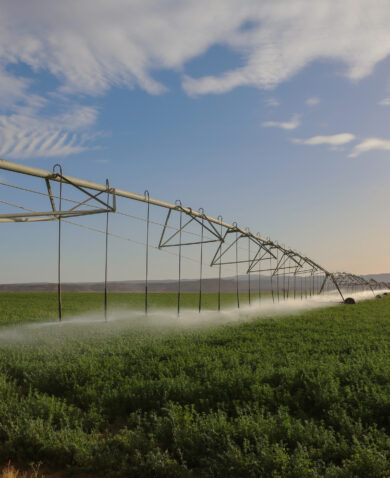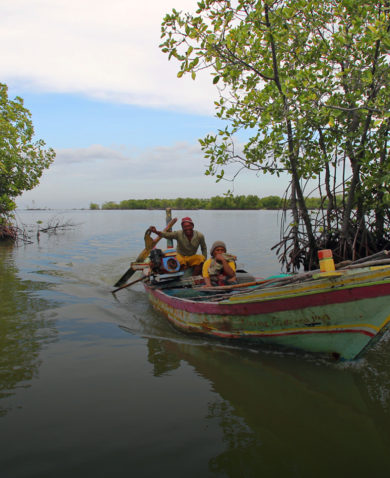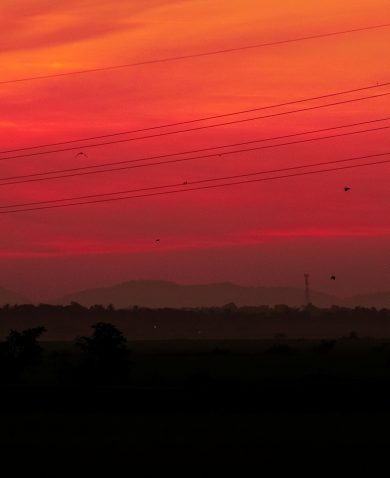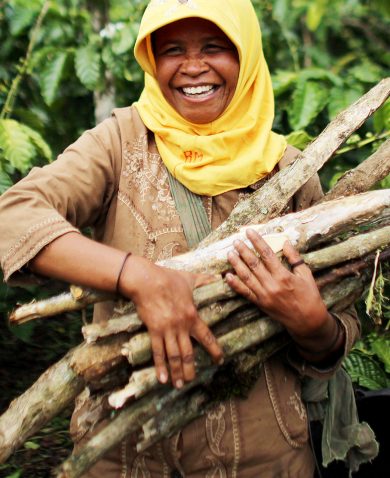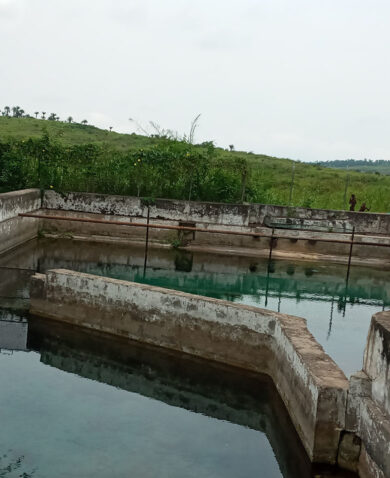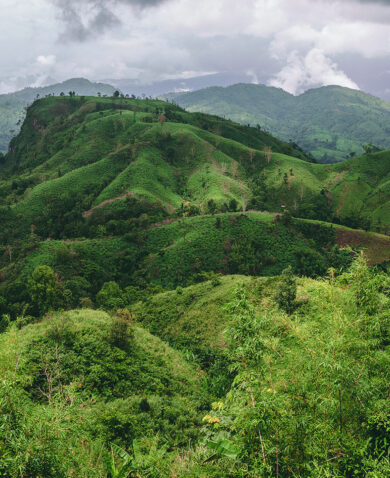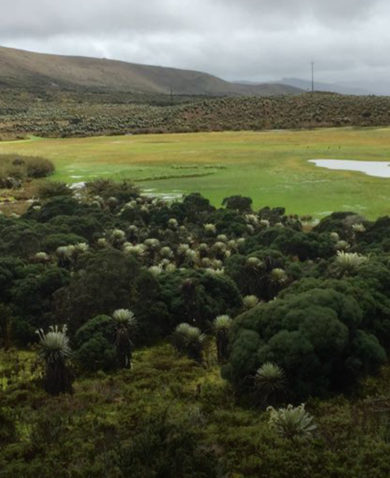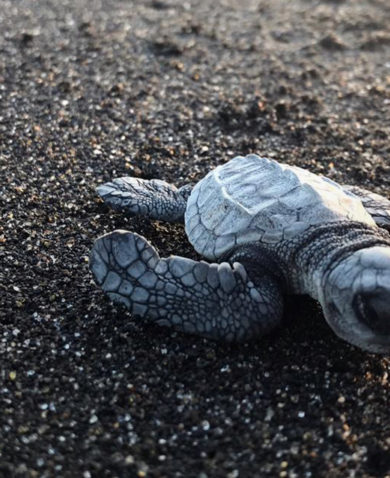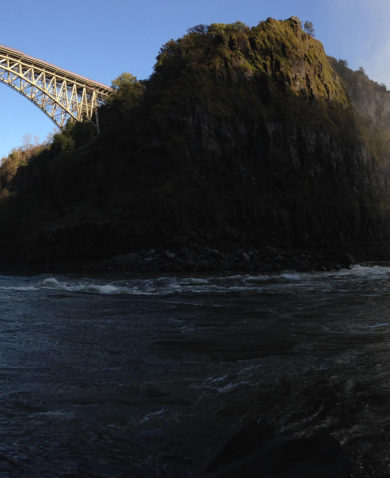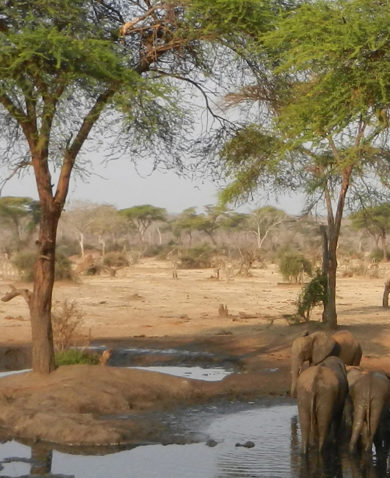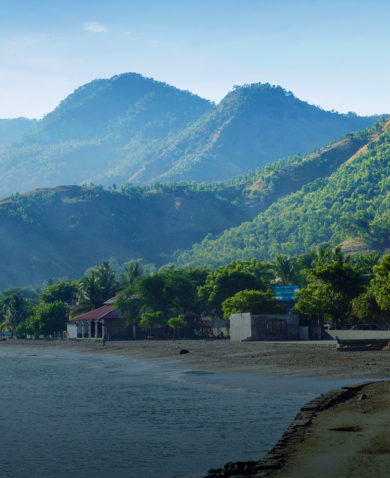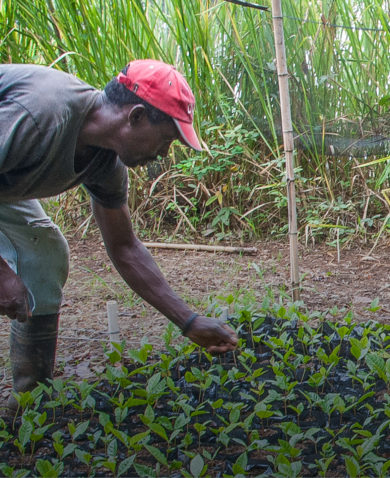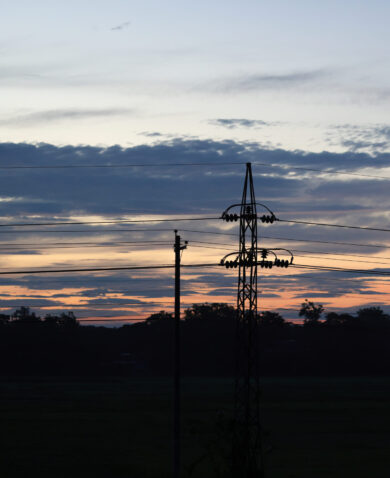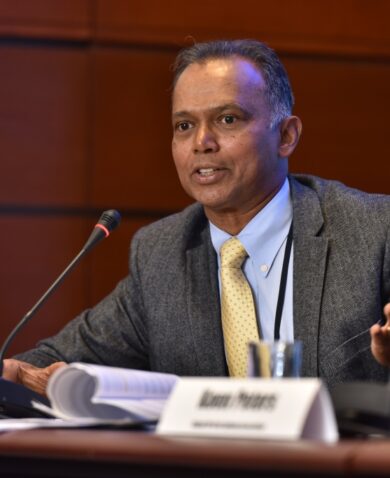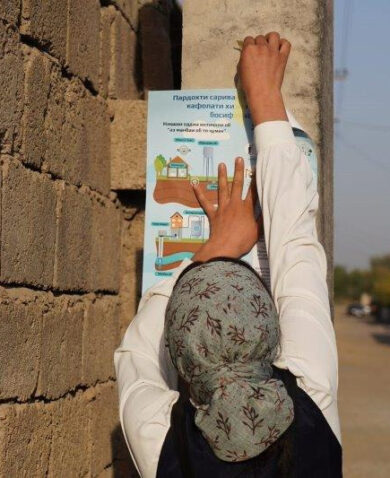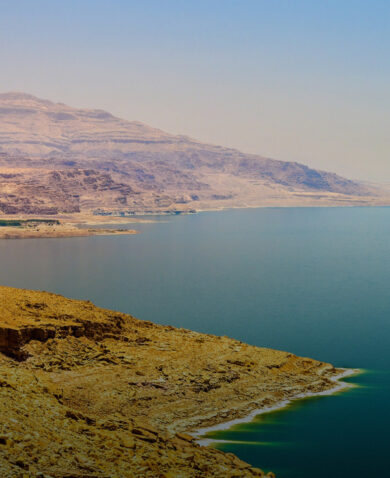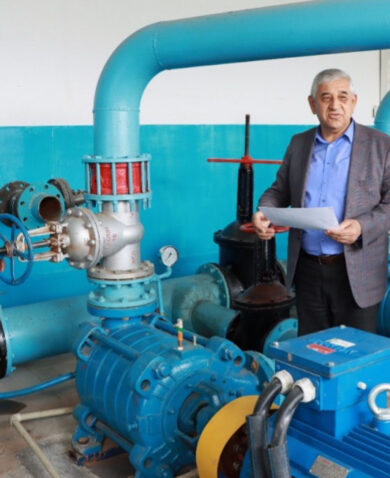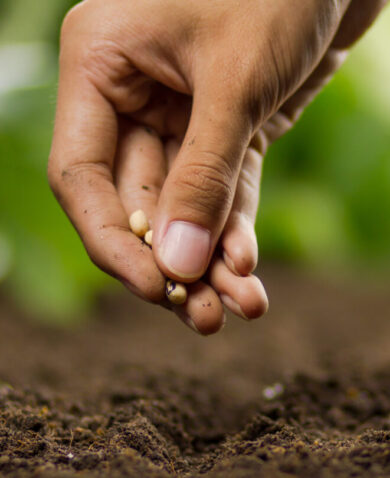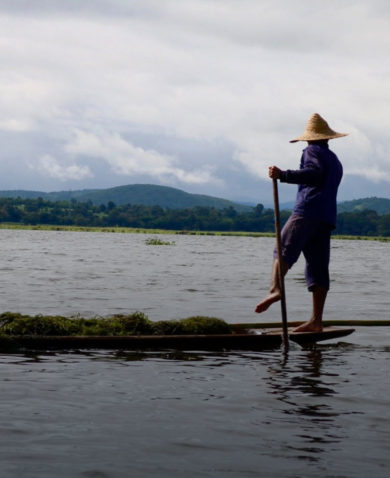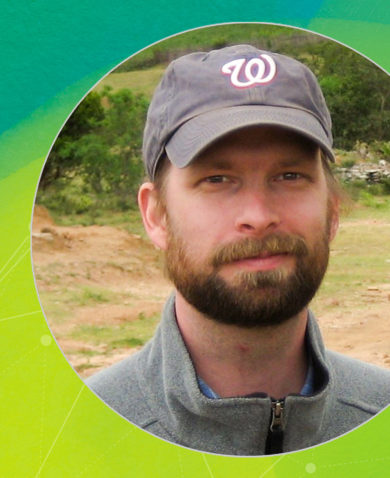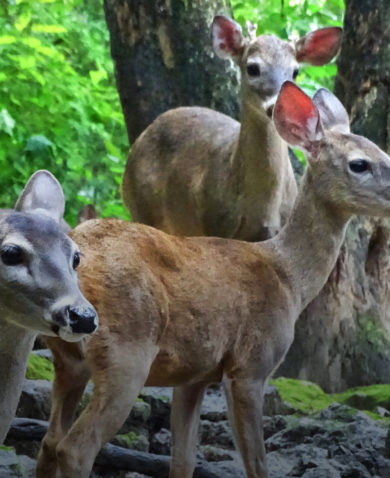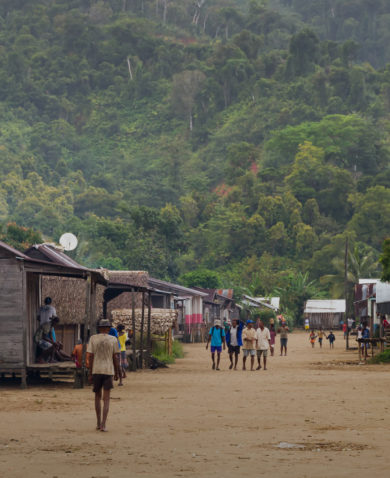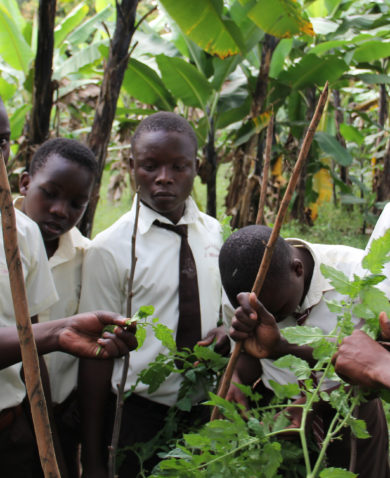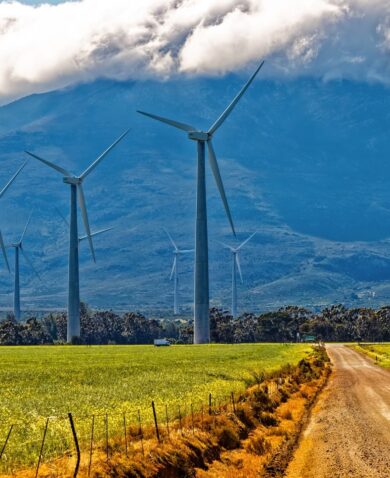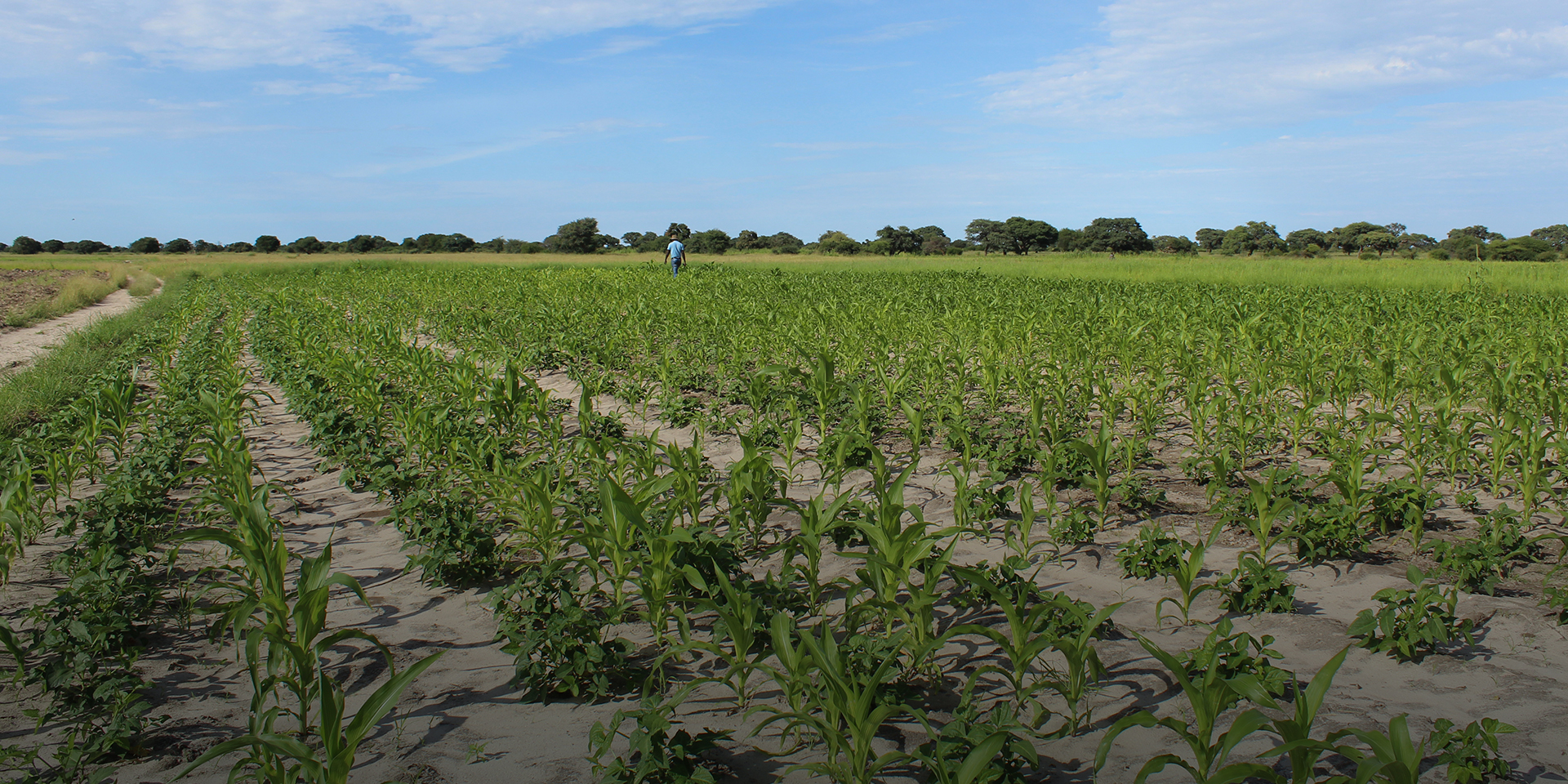
Namibian Farmers Fight Effects of Climate Change with Conservation Agriculture .
May 4, 2021Climate change is devastating crops and livelihoods in Namibia's Kavango region. Conservation agriculture offers farmers hope and the ability to mitigate the impact of an uncertain, changing environment.
![]()
Farmers who work the rich soil of the Okavango River Basin in the Kavango region of Namibia depend on rainfall to water their crops. In 2018 and 2019, the rain didn’t fall, and the worst drought in 90 years devastated fields, killed thousands of livestock, and left a third of Namibians without adequate food. Some farmers, however, managed to keep their crops alive using “conservation agriculture,” a farming system that retains precious water and enriches soils by reducing erosion and conserving resources. Farmer Maria Gorety Mangundu has practiced conservation agriculture since 2015 and now teaches dozens of her neighbors to plant, nurture, and harvest essential food crops despite increasingly uncertain rainfall.
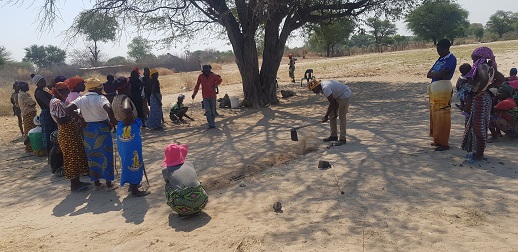
A Slice of Green in a Desert Nation
Namibia is a vast, sparsely populated country on the southwest coast of Africa with scant annual rainfall even in a good year. Eighty-five percent of the country is considered arid or semi-arid. The rugged landscape includes the striking Namib Desert, which extends along the southern coast of the continent, the vast Central Plateau, and the semi-arid sandy savannah of the Kalahari. With average rainfall of 550mm to 600mm per year in the Kavango East and Kavango West regions, the Kavango region in the north along the border with Angola offers a relatively small sliver of fertile soil and greenery — ideal for agriculture but also a vital, rare resource that requires careful management and conservation.
Namibia’s Changing Climate
Climate change threatens this delicate balance. Experts estimate that the mean annual temperature in Namibia will increase 2.7 degrees Celsius in the next two decades, and that annual precipitation will decrease by 7 percent. This would cause more frequent and longer droughts, more heat waves, and even increased flooding as rain patterns change. The Namibian government, civil society, and the international community are working to mitigate the impact on human health and the natural environment. The Namibia Nature Foundation (NNF), Namibia’s top conservation NGO, is leading the charge, promoting sustainable development and natural resource conservation through a systemic, knowledge-sharing approach to improve agriculture practices.
Expanding the Practice of Conservation Agriculture
In late 2019, USAID’s Resilient Waters Program, implemented by Chemonics, teamed up with NNF and farmers to develop strategies that improve crop production and yields and enhance their resilience to future climate shocks.
NNF developed a program to build the capacity of Kavango farmers to apply conservation agriculture to their fields. Using a systems approach, the program assesses local conditions and identifies strategies that work with available resources. This systems approach is critical to deliver on the Resilient Water Program’s objective to build more water-secure communities and ecosystems. Water policies and practices form dynamic links between government priorities, sustainable livelihoods, biodiversity, and ecosystem health. As such, approaches to water and conservation management must be similarly comprehensive and allow for adaptive feedback to changing conditions.
But instead of prescribing one specific technique, conservation agriculture encourages farmers to share effective methods with each other, such as minimal tillage, diversification of crop species, and a permanent soil cover of crops in rotation. This sharing often occurs through “farmers clubs,” sources of collective learning and support.
Training and Networking Farmers
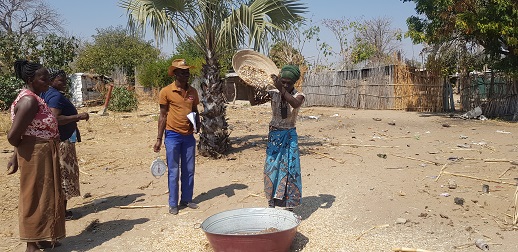
NNF trained 552 farmers, strengthened the organizational capacity and support networks of 12 farmers clubs, and conducted field visits to help farmers successfully apply their new skills. NNF designed the training to build on local farmers’ strengths and knowledge and provided detailed training materials on suitable crops, tools, and timing. The foundation also identified “lead farmers” who already practiced conservation agriculture and engaged them to teach others. Maria is one of those lead farmers, and she shares her knowledge through farmers clubs and directly with others in her community.
Lead Farmers
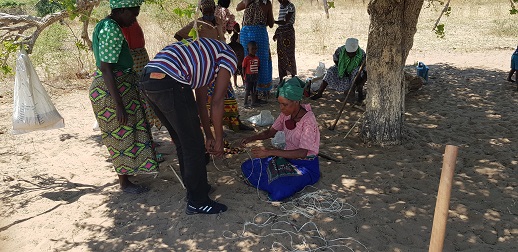
Farmers gather regularly in community spaces as Maria shares a new technique. They ask questions and share ideas as they strengthen their ties and discuss valuable insights on weather, the market, and support through government extension services. Lead farmers such as Maria receive ongoing guidance on communications, training techniques, pest control, post-harvest loss management training, and effective application of conservation agriculture.
Maria uses the “basin method” to grow millet, Bambara nuts, maize, sorghum, and cowpeas on her two-hectare farm. “I dig my basins, apply manure, and plant with the first heavy early rains,” she explained. “I also use the intercropping method, as I don’t have mulch to cover the ground with.” Maria has seen her farm grow under the program. “I have seen an improvement in yield, especially on mahangu [pearl millet, a staple food]. Food diversification promoted under conservation agriculture has enabled me to plan other crops such as cowpeas and groundnuts. I have noticed a change in my soil as application of manure in my field has brought benefits to the soil,” she said.
More farmers are applying conservation agriculture — or CA — in their fields in the Kavango region, thanks to the commitment of the NNF and lead farmers like Maria. “I always share information with other farmers in my village who are not yet practicing CA,” she said.
*Banner image caption: Namibian farmer walks through his CA plot, intercropped with maize and chick peas (which act as both mulch and a nitrogen fixer).


